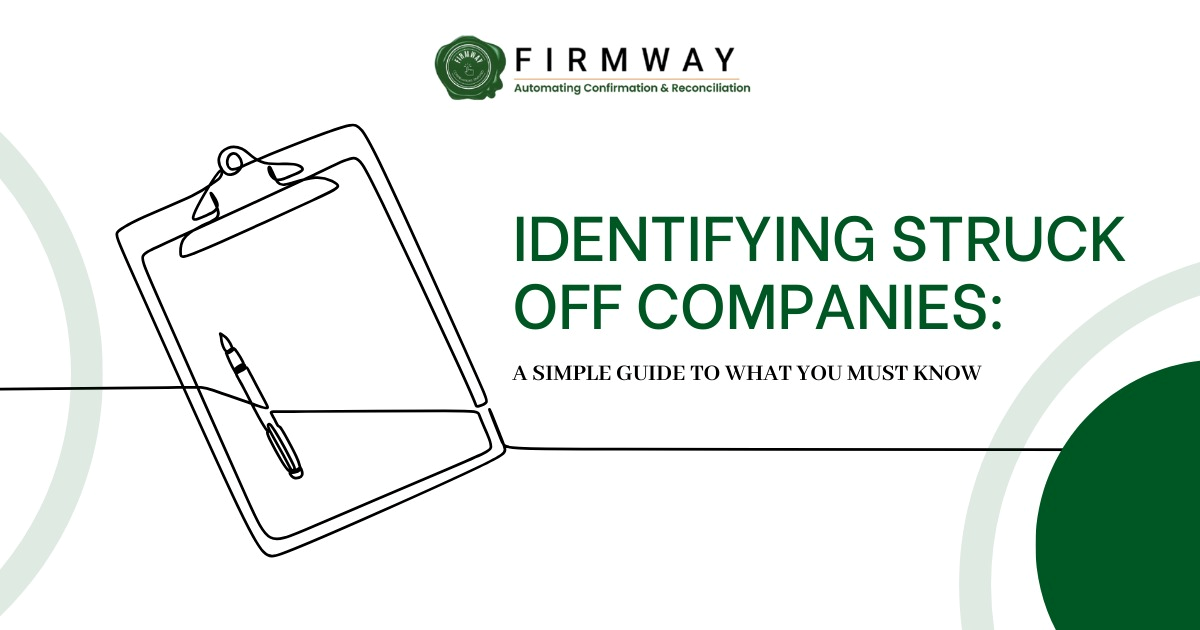First Gazette Notice for Compulsory Strike Off Explained
First Gazette Notice for Compulsory Strike Off Explained
Blog Article
A Comprehensive Guide to the Compulsory Strike Off Treatment in Corporate Governance
Browsing the complex landscape of business administration requires a keen understanding of the treatments that control the dissolution of entities. The required strike off treatment, an essential element in company governance, works as a mechanism to apply compliance and maintain the integrity of business environment. As companies advance and circumstances change, the demand to strike off a business might occur for numerous reasons (first gazette notice). Checking out the ins and outs of this process, including the lawful implications, step-by-step actions, and post-strike off factors to consider, offers very useful insights for stakeholders looking for to browse the intricacies of corporate governance.
Factors for Compulsory Strike Off
There are numerous crucial factors that may motivate the initiation of an obligatory strike off treatment for a company. Non-compliance with governing demands can increase worries regarding the business's operations and monetary health and wellness, leading to the choice to strike off the business from the register.
Furthermore, business that have actually ceased trading or are no more performing any kind of business tasks may also face required strike off. This might be as a result of bankruptcy, mergers, or just a decision to end up the firm. In such cases, keeping the business on the register would certainly offer no objective and can possibly produce complication among stakeholders.
Inevitably, the necessity of an obligatory strike off in business governance arises when a company is no longer running based on the law or has actually ended up being defunct, demanding its elimination from the authorities documents.
Legal Ramifications and Threats
Offered the circumstances that motivate a required strike off in business administration, it is imperative to recognize the lawful implications and threats connected with such activities. When a firm is struck off the main register, it discontinues to exist as a legal entity. This can have serious consequences for lenders, supervisors, and investors. Directors may face individual responsibility for firm debts incurred after the dissolution, revealing their possessions to prospective seizure. Investors shed their financial investment in the company, and lenders may discover it challenging to recoup debts owed to them.
Furthermore, there are legal consequences for people involved in the administration of a company that has actually been forcibly struck off. In addition, the reputational damage from a compulsory strike off can have long lasting effects on people and their capability to involve in future service ventures.
Action In the Strike Off Process
Launching the obligatory strike off procedure in company administration involves a collection of prescribed steps detailed by regulatory authorities. The primary step generally needs the company to send a formal application or alert to the pertinent government company or registrar signaling its intent to be struck off the main register. Ultimately, the company is often required to clear up any type of superior obligations, financial debts, or taxes to ensure conformity with governing demands.
Once the first documents is Discover More submitted and economic obligations are satisfied, the regulatory body will publish a notification in the official gazette or a similar magazine to notify stakeholders regarding the approaching strike off. This notice offers as a last opportunity for any interested events to raise objections or existing legitimate reasons that the company need to not be liquified.
Complying with the magazine of the notice, the regulatory authority will certainly continue with site web the strike off process if no considerable objections or challenges develop. The firm will after that be formally liquified, and its name will be gotten rid of from the register, effectively noting the conclusion of the obligatory strike off procedure in corporate governance.
Files Required for Strike Off
In conformity with governing guidelines, details documents needs to be provided to assist in the strike off procedure in business administration. In addition, economic statements, such as the firm's most current equilibrium sheet, should be consisted of to ensure that all economic obligations have actually been cleared up before initiating the strike off procedure. It is crucial to make certain that all the requisite paperwork is thoroughly prepared and submitted in accordance with the recommended guidelines to expedite the strike off procedure efficiently.
Post-Strike Off Considerations and obligations

An additional essential post-strike off factor to consider is the potential for the business to be brought back to the register. If there is a need to restore the business after strike off, the procedure for repair must be very carefully complied with to make certain compliance with legal requirements.
Conclusion

There are numerous essential factors that might trigger the initiation of an obligatory strike off treatment for a firm. Non-compliance with regulatory requirements can elevate problems concerning the business's procedures and monetary health, leading to the choice to strike off the firm from the register.
In addition, firms that have ceased trading or are no much longer lugging out any type of company tasks may also deal with mandatory strike off. If there is a need to revive the firm after strike off, the process for repair need to be meticulously complied with to make sure compliance with legal demands.In verdict, the mandatory strike off treatment in corporate governance serves as a necessary mechanism to remove defunct firms from the register.
Report this page